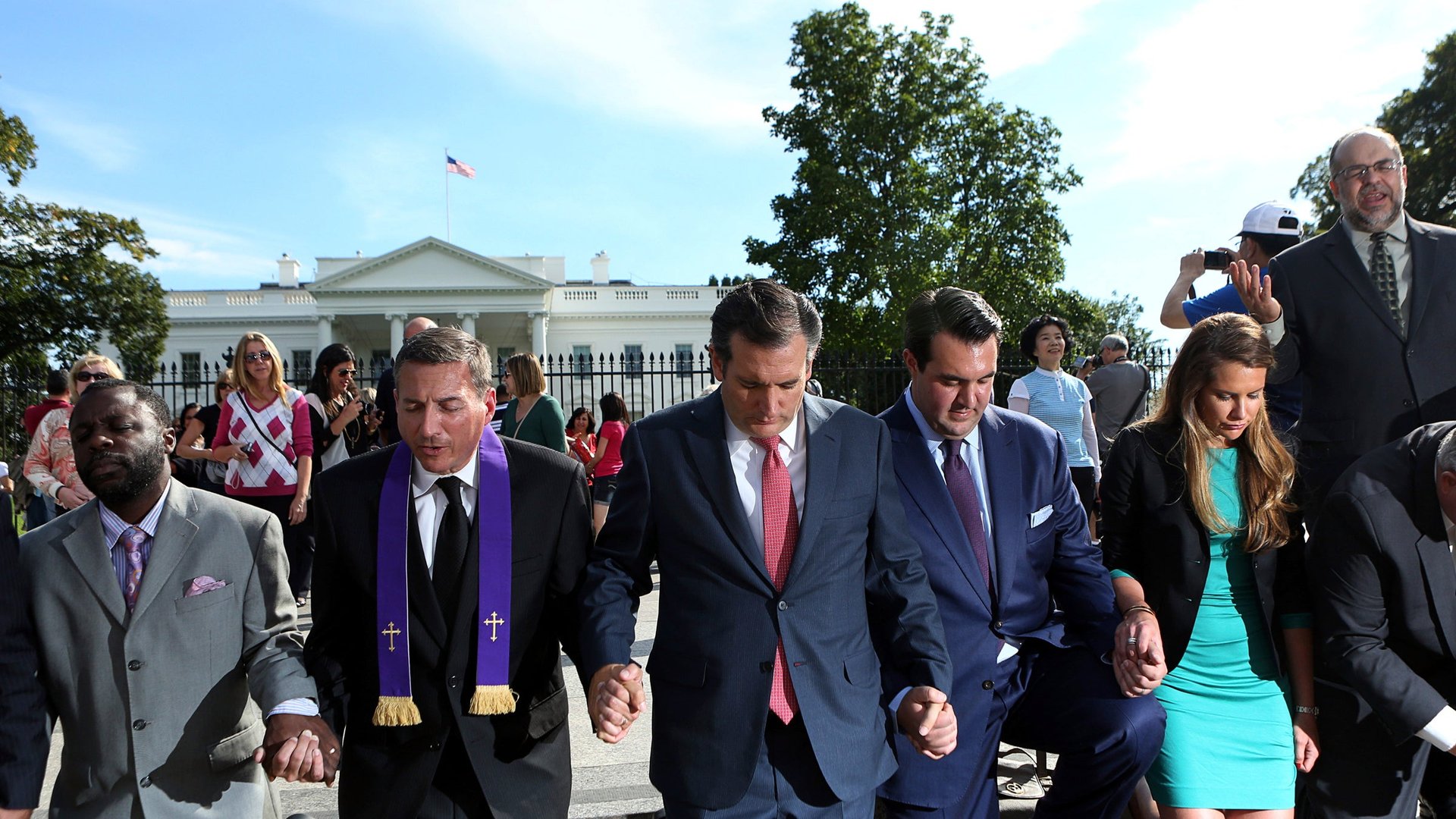Iowa’s ultra-right Christians will save America from Donald Trump
What an irony it will be for American liberals if Donald Trump’s campaign crashes on the rocky shores of Iowa’s powerful bloc of evangelical voters.


What an irony it will be for American liberals if Donald Trump’s campaign crashes on the rocky shores of Iowa’s powerful bloc of evangelical voters.
With his right-wing populist appeal, Trump is attracting the older, white voters who formed the Republicans’ conservative base for the last several elections. But while there is overlap, the message that calls to them isn’t the same one that activates the distinctly American brand of protestant evangelical voter who sits at the heart of the party—accounting for as much as 56% of the Iowa’s primary electorate in 2012—and, through a quirk of geography and the primary voting calendar, dominates its nominating process.
In the 2008 and 2012 elections, candidates skilled at courting this bloc—former Arkansas governor Mike Huckabee and former Pennsylvania senator Rick Santorum—won Iowa, though they were eventually defeated by more moderate candidates as the nominating process continued.
Trump, for all the right-wing scorn he directs at Muslims, is ultimately a libertine New Yorker who can’t talk about being born again, who used to support abortion, and hasn’t won the affection of key leaders in the evangelical movement. It was inevitable that other candidates could exploit those facts: Retired neurosurgeon Ben Carson, who built his political career speaking about his faith, was the first to challenge Trump in Iowa, suggesting there indeed was an opening, and recent polls showing Texas senator Ted Cruz leading Trump in Iowa seem to confirm the thesis.
Cruz’s record of quixotic last stands against abortion rights may upset his colleagues in the Senate, but it inspires evangelical voters. His father, Rafael Cruz, a prominent pastor, has played a role in validating him with local churches, and Cruz himself appears to plugging into the organized faith community that has played such a significant role in past primary elections. Last week, his campaign started a “national prayer team” to attract more evangelicals.
The importance of these voters also explain two other recent stories in the 2016 campaign: Florida senator Marco Rubio, who is also seeking the nomination, struck a particularly harsh tone in his opposition to gay marriage last week, which would be welcome in Iowa’s conservative Christian circles. Meanwhile, rumors abound of new recordings from a New York City fundraiser where Cruz downplayed his social conservatism, which might paint him in a poor light back in Des Moines.
So now the race is on for Iowa’s evangelicals, and the strategy for beating Trump has never been clearer: Start praying.